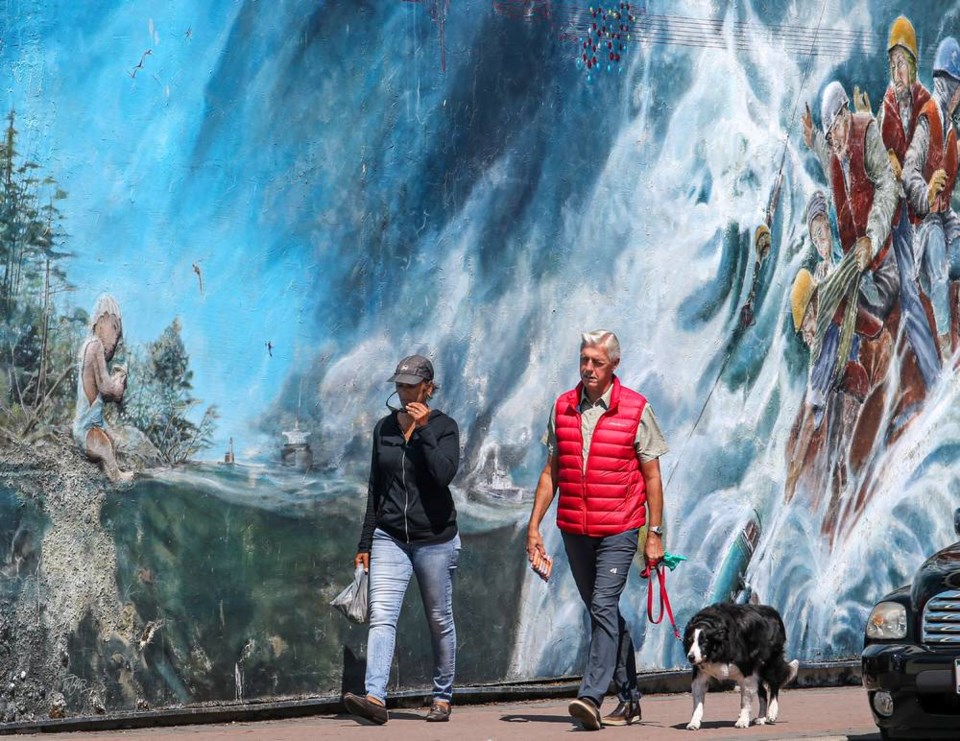HealthLink B.C. offers these tips for keeping comfortable and safe in the heat:
• Drink plenty of fluids. Drink extra water even before you feel thirsty and if you are active on a hot day. Ask your health-care provider about how much water you should drink on hot days if you are on water pills or limiting your fluid intake.
• Keep cool. Stay indoors in air-conditioned buildings or take a cool bath or shower. At temperatures above 30 C, fans alone may not be able to prevent heat-related illness. Sunscreen will protect against the sun’s ultraviolet (UV) rays, but not from the heat.
• Plan activity before 10 a.m. or after 4 p.m., when the sun’s UV radiation is the weakest.
• Avoid tiring work or exercise in hot, humid environments. If you must work or exercise, drink two to four glasses of non-alcoholic fluids each hour. Rest breaks are important and should be taken in the shade.
• Avoid sunburn. Use a broad-spectrum sunscreen with SPF 30 or higher on exposed skin and an SPF 30 lip balm, and reapply often.
• Wear lightweight, light-coloured, loose-fitting clothing and a wide brimmed hat, or use an umbrella for shade.
• Never leave children alone in a parked car. Temperatures can rise to 52 C within 20 minutes inside a vehicle when the outside temperature is 34 C. Leaving the car windows slightly open will not keep the inside of the vehicle at a safe temperature.
• Regularly check older adults, children and others for signs of heat-related illness, and make sure they are keeping cool and drinking plenty of fluids. Check on those who are unable to leave their homes and people with emotional or mental-health challenges whose judgment may be impaired.
• Heat also affects pets. Never leave a pet in a parked car. Limit pets’ exercise, and be sure to provide them with plenty of water and shade.
Home treatment for mild heat exhaustion may include:
• moving to a cooler environment
• drinking plenty of cool, non-alcoholic fluids
• resting
• taking a cool shower or bath.
If symptoms are not mild, last longer than one hour, change, worsen or cause concern, contact a health-care provider.



